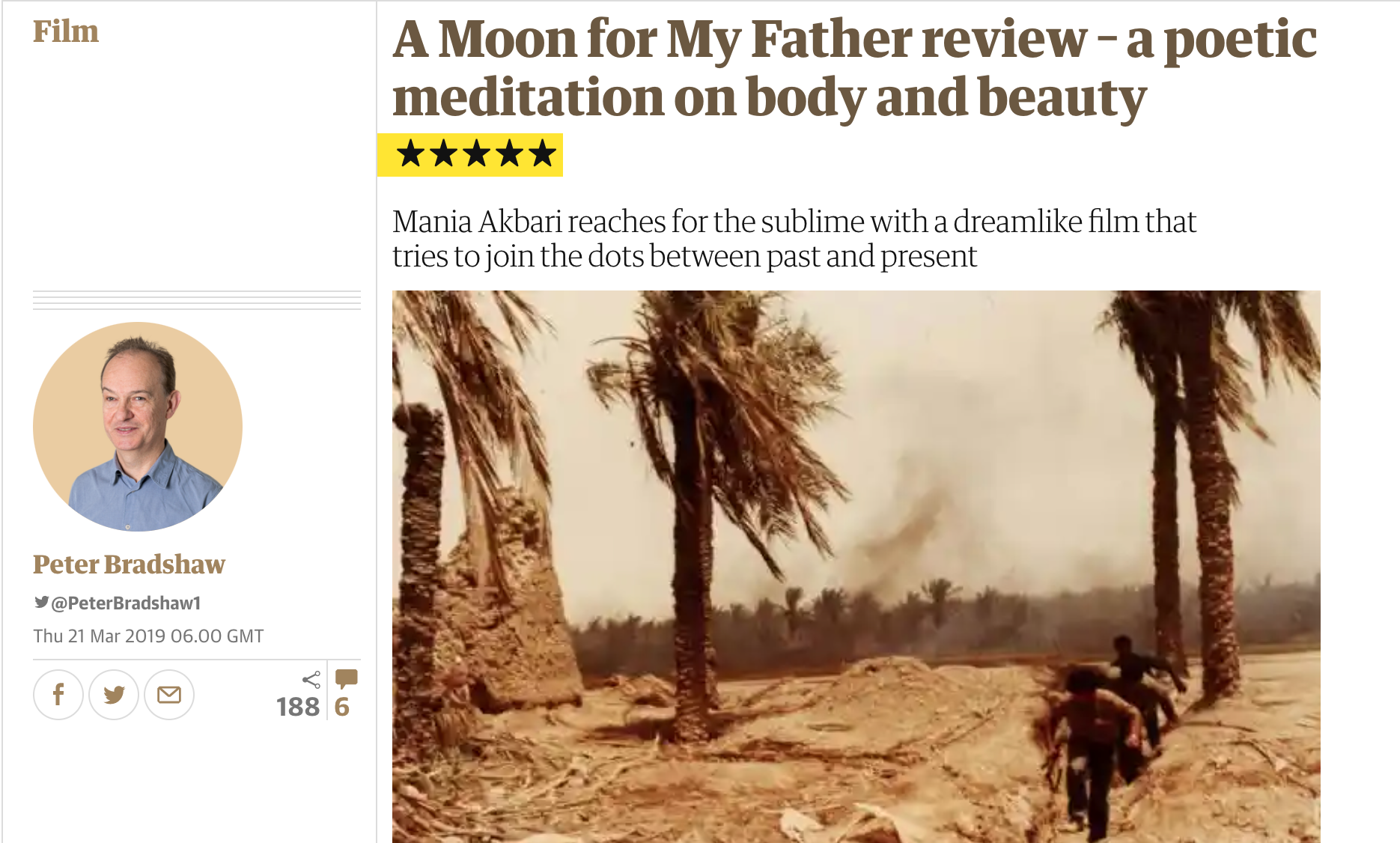A Moon For My Father | 5* Review in The Guardian
Read the full article here
“This is a deeply intimate, personal and moving work from the Iranian film-maker Mania Akbari, whose movies have often been meditations on beauty and body image. (As an actor, she is also known for starring in Abbas Kiarostami’s film Ten.) Akbari has made this in collaboration with her partner, the artist and sculptor Douglas White, and the result is a form of digressive-poetic cinema, connecting images and ideas in a dream-associative logic.
It is loosely structured around the idea of letters written between Akbari and White, alternating voiceovers as they muse on how what is happening to them to now relates to their family and childhood. Akbari speaks in (subtitled) Farsi on these occasions, but in English to everyone else. The film opens with material shot about five years ago: a very candid scene of Akbari being photographed in a hospital suite after a double mastectomy; as the months and years go by, she will prepare not merely for reconstructive surgery but for her ovaries to be removed to pre-empt a recurrence of cancer, and also to have IVF treatment.
Akbari reflects on the latex implants, on the rubber industry, on her memories of childhood during the Iran-Iraq war and the injuries and amputations sustained by soldiers. White considers how the rubber he has used in his work in the form of reclaimed material resembles the wings of a fruit bat he saw while in Australia for his father’s funeral. Akbari wonders about the skin of a dead elephant and says: “The most profound physical level of human beings is their skin.”
It is a film which calmly, almost miraculously, avoids the tones of tension or trauma or ostentatiously courageous humour that might otherwise characterise a conventional Anglo-American documentary treatment. Instead, Akbari insists on finding a way of thinking about it that transcends her own feelings: she almost always looks in emotional control – a function, perhaps, of her directorial control. She ponders how the body is veiled and discusses anti-hijab protests in Iran. These led to activists standing on concrete boxes housing electricity meters in the street; the government put angled metal covers on these to prevent them being used in this way – and the protesters duly built level wooden platforms on them. Akbari wittily calls this a “collaborative sculpture project” between people and government. This is a completely unique and revelatory piece of film-making.”
Peter Bradshaw
